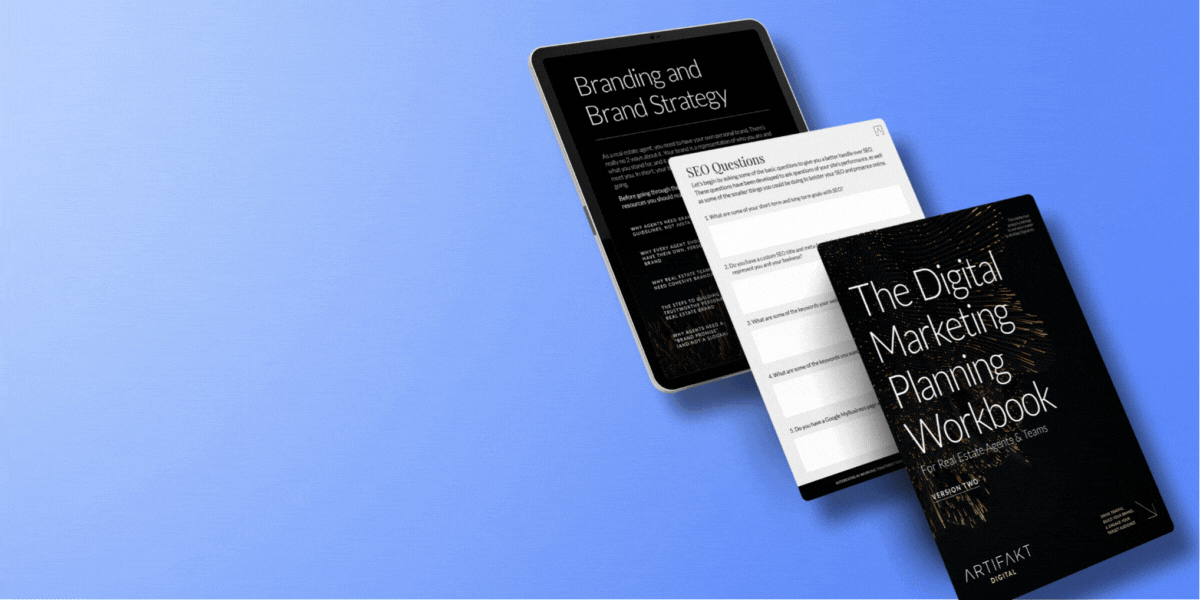Determining What a Real Estate Lead Actually Is

The term ‘lead’ gets thrown around a lot by real estate agents and real estate marketing companies alike, and with good reason. Generating leads is the whole reason you, as a real estate agent, have a marketing strategy in place to begin with.
But before putting a marketing strategy in place, very few agents actually ask themselves the all-important question: What is a lead to me?
The answer is different for every agent, and that’s because every agent’s marketing strategy, workflow, and personality is different; every agent defines the success of their marketing strategy differently. That’s why when you first begin your marketing strategy, it’s key to define what exactly that success is.
Before we start a project, we always ask our clients: if I was to contact you in a year, and you told me that the project we did was successful, how would you define that success? The answer is often ‘an increase in leads’, which is why it’s so key to define what a lead is to them.
A lead is a really wide term, and what is a lead for one agent may not be considered a lead to the next.
Usually, agents have a core type of client they ideally want to work with. Some agents work primarily with sellers, some work primarily with buyers, and some work with renters; some agents work with older people that are downsizing, some agents work with young families moving to the suburbs, and some agents work with younger people buying condos in the heart of the city; once an agent defines their core type of client, they should be focusing on leads that fit that core.
Agents should have a specific target audience that their marketing strategy is planned out to market towards, so what is a lead to them should be derived from that target audience.
Most agents also have a window of time that they ideally want the transaction to take place, and while ‘immediately’ might seem like the obvious answer, agents that operate within a workflow that allows them more time to nurture the relationship are ok with collecting leads from people that are going to be transacting within a few months, or even a year.
When putting together a marketing strategy, and you’re defining what a lead is, ideally, you should focus on quality vs quantity. As a busy agent, just getting a bunch of email addresses without any context isn’t really ideal as a quality lead. Your strategy should be focused on getting the most information that the person is willing to give you, while also ensuring you have an idea of where they fit in your lead flow. As part of your marketing strategy, you’ve likely identified your target audience, and a quality vs quantity lead will be someone that fits nicely within that demographic.
Qualified leads are obviously a lot easier to turn into actual transactions, but how do you get qualified leads? The answers are: by showing value, by building a connection, and by answering their pain point at that moment.
Showing Value: If your marketing strategy is well-thought-out, and you’re able to clearly show what makes you stand-out among your competitors, you’ll be building the value you show to the people that engage with your marketing and visit your website. By showing value right up front in a concise way, your audience will know exactly why they should work with you and what makes you different than the thousands of other agents out there.
Building a Connection: Your audience needs to trust you and needs to know that you’re relatable to them. Within your marketing plan, you’ll likely need to interact with your audience multiple times; basically, they need to be reminded that you exist as often as possible without being annoyed. You can do this by having a cohesive strategy in place that covers all of the bases as to where your audience is likely to interact, like through print marketing and direct mail, digital advertising, blogging, social media, digital newsletters, and more, all with the goal of pushing them to your website as often as possible. By being reminded of you, you’ll be building a connection with your audience and they’ll be more likely to contact you when they’re ready to make a decision about buying or selling a home, and if they trust you enough, you’ll be the only agent they contact.
Answering Pain Points: You need to understand what your audience is looking for and what the problems are that they’re facing right now, and then address them through your overall marketing. If your audience is experiencing a pain point, they need to know that you’re the right person to solve it for them. If the people in your local farming area are experiencing a similar pain point right now, your marketing should highlight how you can help.
As an agent, defining what a lead actually is to you is the core, most important, part of planning out your marketing strategy.
Without it, you not only will get the results you want, but you also won’t be able to identify what makes your overall marketing strategy a success, or a failure.
Want to plan your digital strategy on your own, and set your business up for success? Download our workbook: ‘The Digital Business Planning Workbook’. It’s a self-guided, interactive, strategic workbook where you answer questions about branding, SEO, content, design, and a lot more, so you can set goals for your website and your digital marketing efforts. And, it’s free to download.






















